Sustainability has been embedded in Mauritius’ development policies well before the elaboration of international instruments for sustainable development.
All manufacturers of goods and service providers from Mauritius can boast of the sustainability of their offerings, thanks to the achievements made by the country to meet the Sustainable Development Goals.
International buyers and investors can rest assured about the sustainability of their supply chain when sourcing from Mauritius.
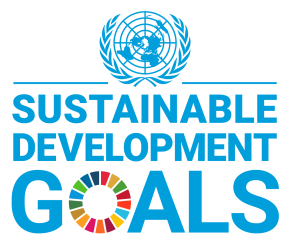
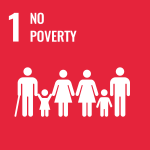
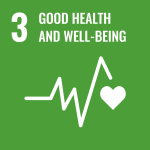
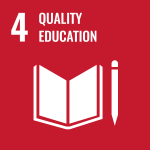
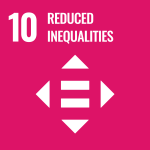
- Education is free up from pre-primary to tertiary levels in all public education institutions. Education is compulsory until the age of 16 years
- Free transport is provided to students, the elderly (above 60) as well as the disabled
- Mauritians benefit from a universal free public health care system. Pediatric patients up to the age of 17 years who require medical treatments not available in Mauritius, can benefit from Government’s Overseas Treatment Scheme that covers the full cost of overseas treatment
- Every citizen is entitled to a non-contributory old age pension
Both Mauritians and migrant workers can benefit from the national minimum wage
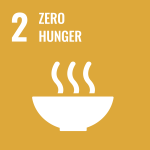
Mauritius is almost 100 percent self-sufficient in the production of fresh vegetables, tropical fruits, poultry meat, eggs, fish (tuna) and deer meat. However Mauritius remains a net food importing country. Mauritius ensures its food security by importing food products at zero customs duty from countries with which it has signed preferential trade agreements.
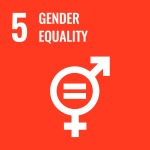
- The Constitution of the Republic of Mauritius provides for non-discrimination.
- Mauritius’ labour legislation, apart from the provision on maternity leave, is gender neutral in application for both local and migrant workers.
- Men and women in Mauritius have equal access to financial services and productive resources and have equal rights to housing, land and inheritance.
- There are gender-neutral quotas for municipal and village council elections.
Listed companies need to have a minimum of 25% of women on their boards
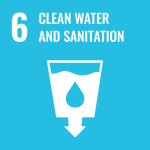
- Almost all Mauritians have access to safe water
- Almost the entire country has access to sanitation facilities
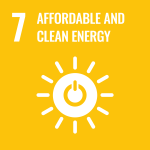
- In 2021, around 21.5% of electricity was generated from renewable sources, including hydro, wind, landfill gas, photovoltaic, and bagasse.
- Mauritius is working towards a phase-out of coal and an increase in the share of renewable sources in the electricity mix to 60% by 2030.
- Concerning energy efficiency, Mauritius is commited to an increase of 10% of energy saving in electricity consumption by 2030 compared to 2019 figures.
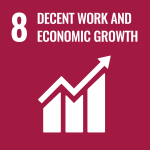
- Mauritius has ratified all 10 Fundamental Conventions of the International Labour Organisation as well as a number of ILO’s Governance and Technical Conventions.
- The Workers Rights Act of Mauritius provides the legal framework to protect workers, including measures against discrimination in employment and against employment of children.
- The National Wage Consultative Council Act provides for a national minimum wage in order to improve the living conditions of the lowest paid workers and promote decent work and living conditions.
- Migrant workers are allowed to work in Mauritius with the appropriate work permit and residence permit. They are eligible to the National Minimum Wage and can avail themselves to free medical treatments in the public health institutions of Mauritius. They also have the right to be a member of a Trade Union.
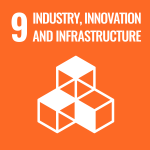
- Manufacturing represents 13.6% of GVA (in 2022)
- The Mauritius Research and Innovation Council provides grants for R&D
- Digitalisation of several public services
- Percentage of population covered by mobile telephony (2021) = 99%
- Internet subscriptions per 100 inhabitants (2021) = 143.3
- An international airport of 57,000 sqm that receives services from destinations from Eastern and Southern Africa, the Asia Pacific, Europe and the Middle East.
- Port Louis has a container terminal with a capacity of 800,000 TEUs and is one of the deepest ports in the southwest Indian Ocean, capable of handling container vessels with a draft of about 15.0 meters and a capacity of 12,000 TEUs.
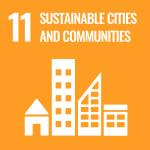
- Two world heritage sites (Le Morne and Aapravasi Ghat)
- Social housing units delivered to vulnerable households
- Disaster risk reduction with the construction of drains in flood-prone areas
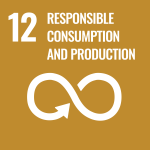
Plastics
- Mauritius is working towards making the country plastic-free.
- The possession, use, distribution, sale, import, manufacture or supply of non-biodegradable plastic bags and non-woven polypropylene bags, is prohibited, but with the exception of certain types of exempt plastic bags such as those used for food packaging, waste disposal, agricultural and medical sectors, as well as those for sampling and analysis.
- The use of biodegradable or compostable bags or other eco-friendly alternatives is encouraged.
- Other prohibited single-use plastic products include Plastic cutlery, plate, cup, bowl, trays/barquettes, beverage stirrer, hinged container, lid for single use plastic products and receptacles of any shape, with or without lid, used to contain food intended for immediate consumption (either on the spot or take away and supplied by a food service business)
Environmental Impact
Assessments (EIAs)
Under Mauritius’ Environment Protection Act, several economic activities require EIAs to predict the environmental and socio-economic consequences of the proposed developments before the operations start. The EIA process allows for transparency and public participation. In order to facilitate the procedures, application for an EIA is made online on the Mauritius Business Licensing Platform.
Sustainability in the Supply Chain
All Mauritian companies have to comply with the required social and environmental requirements set in the various laws that regulate Mauritian businesses in terms of environment, labour and social contributions.
There are private sector initiatives that aim at making Mauritian companies demonstrate greater environmental stewardship and social responsibility:
Made in Moris
“Made in Moris” (https://www.madeinmoris.mu/) is a private label of the Association of Mauritian Manufacturers that promotes local know-how, innovation and competitiveness. Goods and services that are certified “Made in Moris” must meet specifications that are certified by SGS. The member companies need to show their commitment to the social, environmental and economic development of Mauritius.
Signe Natir
“Signe Natir” (https://signenatir.mu/) is an initiative of Business Mauritius, a private sector association of more than 1200 enterprises, of all sizes and from all sectors. It aims at helping Mauritian companies to engage in sustainable consumption and production, shift to a low-carbon economy, protect the biodiversity and natural heritage, valorise cultural and historical heritage and adopt inclusive development practices.
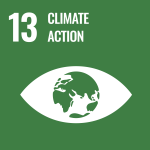
- Mauritius is fully committed to combat climate change under the Paris Agreement. A dedicated Climate Change Department within the Ministry of Environment is responsible for policies and measures on both adaptation and mitigation, as per the provisions of Mauritius’ Climate Change Act.
- Mauritius’ greenhouse gas (GHG) emissions are limited, with a total of 5,471.8 Gg carbon dioxide equivalent (CO2-eq) in 2021, equivalent to less than 0.01 % of global GHG emissions.
- Mauritius is working towards the reduction of its GHG emissions by 40% in 2030.
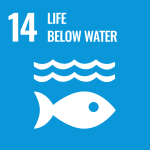
- Six Fishing Reserves and two Marine Parks in mainland Mauritius.
- Five Fisheries Reserve Areas, four Marine Reserves and a multiple use Marine Protected Area in Rodrigues island.
- Mauritius will establish a Marine Protected Area around the Chagos Archipelago.
- Mauritius has ratified a number of international conventions and agreements such as the UN Convention on the Law of the Sea, the UN Agreement on the Conservation and Management of Straddling Fish Stocks and Highly Migratory Fish Stocks, the FAO Agreement to Promote Compliance with International Conservation and Management Measures by Fishing Vessels on the High Seas, the FAO Code of Conduct for Responsible Fisheries and the FAO Agreement on Port State Measures to Prevent, Deter and Eliminate Illegal, Unreported and Unregulated (IUU) fishing.
- The Integrated Coastal Zone Management Framework provides for coastal protection works, beach reprofiling and other erosion control measures, coral reef ecosystem monitoring and lagoon water quality monitoring.
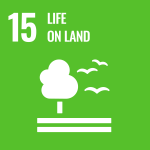
- The flora and fauna of Mauritius has a relatively high level of diversity and endemism as a result of the island’s location, age, isolation and varied topography.
- Mauritius has ratified a certain number of international conventions and agreements for Biodiversity protection, including the Convention on Biological Diversity (CBD), The Convention on International Trade in Endangered Species of Wild Fauna and Flora (CITES), The Convention on Wetlands (RAMSAR), The UN Convention on the Control of Transboundary Movements of Hazardous Wastes and their Disposal (MARPOL), amongst others. It also has a series of legislation for biodiversity conservation.
- Mauritius has 691 native plant species of which 273 are single island endemics and another 150 are Mascarene endemics, Rodrigues has 150 native plant species, of which 47 are single island endemics, and 72 are Mascarene endemics. The only native mammals are bats, and 9 remaining endemic birds and 11 remaining endemic reptile species.
- To conserve marine biodiversity, a system of Marine Protected Areas comprising Fishing Reserves, Marine Parks and Marine Reserves, has been established in the waters around Mauritius and Rodrigues islands
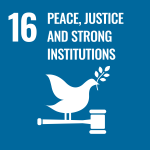
- The Constitution rests on two fundamental tenets which are the rule of law and the principle of separation of powers between the legislature, the executive, and the judiciary.
- The independence of the Judiciary is guaranteed by the Constitution
Mauritius is a sovereign democratic state with a Westminster system of Government and elections held every five years. - Mauritius is a party to major human rights related conventions and treaties.
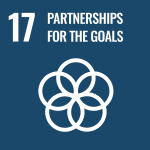
- Mauritius is signatory to a number of free trade agreements and preferential trade agreements which target 70% of the world market. These include the European Union, China, India, Africa, Turkey, Pakistan, COMESA, SADC, AfCFTA, UK and USA.
- Mauritius also has regional cooperation agreements with the Indian Ocean Commission and the Indian Ocean Rim Association.
- Mauritius has also established an extensive network of bilateral Double Taxation Avoidance Agreements (DTAAs) and Investment Protection and Promotion Agreements (IPPAs) to encourage trade and investment flows.


